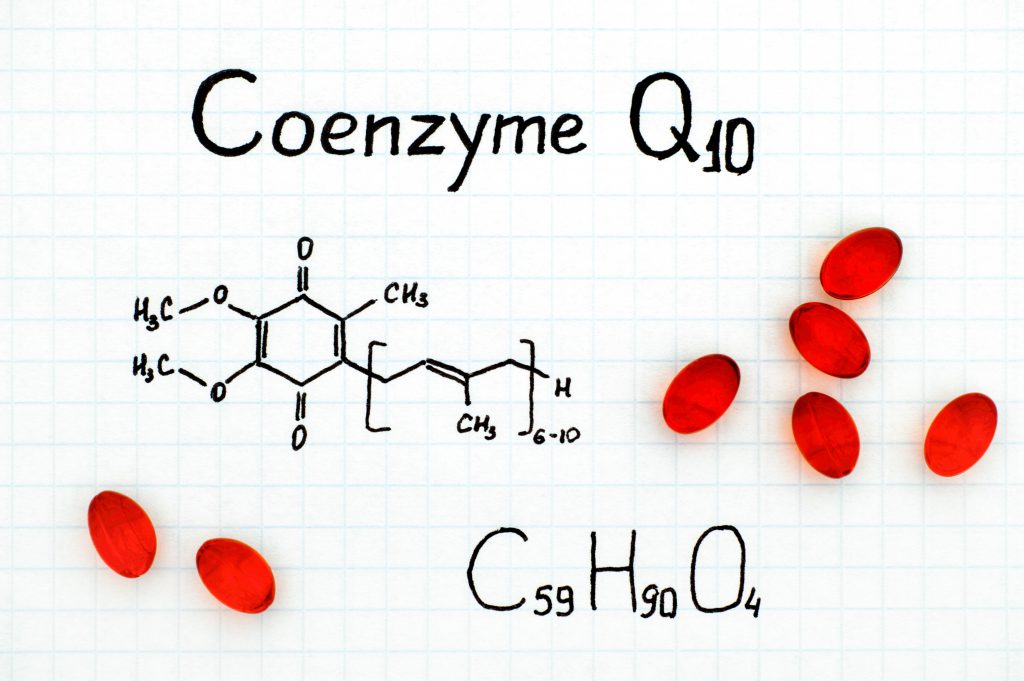Were you aware of coenzyme q10, also known as coq10? If no, then this might be your chance to know more about this! In this article, we will discuss the things you need to know about coq10 and its relation to fertility.
What is Coenzyme Q10?
Coenzyme q10 (coq10) is an antioxidant used by cells for growth and maintenance. Coq10 levels have also been found to be lower in people with certain conditions, like a heart condition, and in people who take cholesterol-lowering drugs called statins. This enzyme is found in meat, fish, and nuts.
Does Coenzyme Q10 Boost Fertility?
There is a strong association between inadequate mitochondrial function and infertility. In light of the central role of coenzyme q10 in mitochondrial function, coq10 is also involved in infertility. Its levels decrease with age and more profoundly in women in their late 30s and after. In addition, the eggs of older women do not produce enough coq10, which is associated with an age-related decline in egg quality and quantity. This decline could be reversed by coq10 supplementation. Coq10 supplement can also impact IVF outcome. Higher concentrations of coq10 are related to better quality embryos and better pregnancy rates.
Men can also benefit from coq10 supplementation. Coq10 levels within the semen correlate with sperm counts and motility. Supplementation with coq10 may end in higher sperm counts and improved sperm motility. Further studies are needed to work out whether there’s also an impact on birthrate. It is important to notice that coq10 is assessed as a natural health product (nhp) and marketed as a dietary supplement. It appears to be safe and to supply few side effects when taken as directed. However, the supplement industry is not regulated, and composition varies widely between manufacturers.
Dosage of Coenzyme Q10
Though 90–200 mg of coq10 per day is usually recommended, needs can vary counting on the person and condition being treated.
Side Effects of Coenzyme Q10
- Coq10 is usually well tolerated, even at extremely high doses of 1,000 mg per day or more.
- However, some people who are sensitive to the compound may experience side effects, such as diarrhea, headache, nausea, and skin rashes.
- It should be noted that taking coq10 close to bedtime may cause insomnia in some people, so it’s best to take it in the morning or afternoon. Consult your doctor before taking supplemental coq10.
- As it’s fat-soluble, those supplementing with coq10 should keep in mind that it’s better absorbed when taken with a meal or snack that contains a fat source.
- Additionally, be sure to buy supplements that deliver coq10 in the form of ubiquinol, which is the most absorbable.
Myths and Facts of Coq10
Myth 1: there is no link between coq10 and fertility.
Fact: coq10 and fertility go hand-in-hand.
Ovulation is an energy-intense process. A woman’s eggs (oocytes) are cells, and therefore the mitochondria are liable for energy production within the cell. The human egg contains more mitochondria than the other cell. As men and girls people age, the production of coq10 decreases. Coq10 levels are highest during the primary 20 years of life, after which they start to decline. Coq10 promotes egg quality in older women.
Myth 2: coq10 only helps female fertility.
Fact: there’s a connection between coq10 and male fertility, too.
Several factors contribute to male fertility. Perhaps one among the foremost damaging is often the presence of free radicals.
It takes approximately three months for fully mature sperm to make. During that point, free radicals can cause damage to the sperm by attacking and destroying the membrane that surrounds sperm cells.
Coq10 is a powerful antioxidant. Coq10 may support healthy sperm motility, sperm density, motility, and morphology.
Myth 3. Coq10 is only good for heart health.
Fact: coq10 works for all cells in your body.
The benefits of coq10 for supporting heart health are well-documented. However, if you know how coq10 works in general, you can see that it may be beneficial for almost every cell in your body.
Cells are the building blocks of life, and coq10 plays a big role in cell function. When we eat food, those nutrients must be converted into a sort of energy that cells can use. This conversion process is called cellular respiration. A majority of respiration happens within the mitochondria, an organelle often called the “powerhouse” of the cell. One of these processes is named the electron transport chain (etc). The etc relies heavily on coq10 to assist carry electrons through its different stages. If coq10 levels are low, cells produce energy less efficiently.
In addition to helping within the etc, coq10 may be a powerful antioxidant. Antioxidants are substances that protect cells from damaging reactions. Highly reactive molecules, or free radicals, can cause any damage to the cell.
Conclusion
Overall, this enzyme is positive for boosting fertility. However, consult a doctor before trying anything.
References
https://www.webmd.com/diet/supplement-guide-coenzymeq10-coq10
https://www.webmd.com/vitamins/ai/ingredientmono-938/coenzyme-q10
